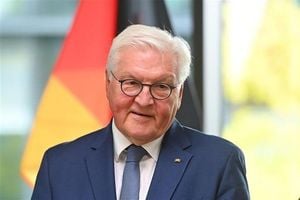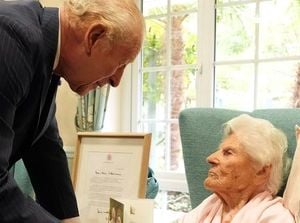Turkey’s political landscape was rocked again on Sunday, September 21, 2025, as the country’s main opposition party, the Republican People’s Party (CHP), held a high-stakes extraordinary congress in Ankara. In a show of unity and defiance, party delegates unanimously re-elected their chairman, Ozgur Ozel, with all 835 valid votes cast in his favor—a move designed to shield the party’s leadership from looming legal threats and escalating government pressure.
The extraordinary congress, attended by hundreds of party delegates and closely watched by the nation, wasn’t just another routine political gathering. Instead, it was a calculated maneuver by the CHP to preempt a potentially destabilizing court ruling scheduled for October 24, 2025. That ruling could annul the results of the party’s 2023 congress—the very event at which Ozel first clinched the chairmanship—on grounds of alleged electoral fraud and procedural violations. According to Reuters, the case has become a flashpoint in Turkey’s increasingly polarized political climate, with critics arguing it exemplifies the government’s tightening grip on opposition forces.
Prosecutors have accused the CHP of a range of irregularities during the 2023 congress, including buying votes, offering delegates cash and jobs, and violating Turkey’s strict political parties law. Twelve party members, among them the high-profile and now-jailed Istanbul Mayor Ekrem Imamoglu, currently face charges. Every one of the accused, including Ozel and Imamoglu, has denied any wrongdoing, asserting that the allegations are little more than a thinly veiled attempt to weaken the opposition through judicial means rather than at the ballot box. "We have done nothing wrong. These accusations are politically motivated," party officials have insisted, as reported by the Associated Press.
President Recep Tayyip Erdogan and his ruling AK Party, which has held sway over Turkish politics for more than two decades, have not held back in their criticism. Erdogan has repeatedly called the 2023 CHP vote “tainted” and a “fraudulent process.” He and his supporters maintain that Turkey’s courts are impartial and that the investigations are focused solely on rooting out corruption, not political retribution. Yet, for many observers—both inside and outside Turkey—the timing and tenor of the legal actions suggest otherwise, fueling accusations of creeping autocracy and judicial overreach.
The stakes for the CHP could hardly be higher. As the largest opposition group in the Turkish parliament, the party wields significant influence, controlling major municipalities such as Istanbul and the capital, Ankara. After making notable gains in the 2024 local elections, the CHP and its municipal leaders have faced what they describe as a wave of politically motivated arrests and interventions. Istanbul Mayor Imamoglu, widely regarded as Erdogan’s most formidable political rival, was arrested on corruption charges in March 2025—a move that triggered widespread protests across the country. According to BBC, nearly 1,900 people were detained during those demonstrations, a testament to the deep public frustration and the high political temperature.
Ozel’s re-election at Sunday’s congress was not just about internal party politics. By securing a fresh and unanimous mandate from delegates—835 out of 917 votes cast, with all valid ballots supporting him—the CHP leadership hopes to present a united front to the courts and the public. The party’s calculation is straightforward: a clear, renewed endorsement from its grassroots makes it harder for any court to justify removing Ozel or annulling the congress results. As one party official put it, “We needed to show the court—and the country—that our leadership is legitimate and has the full support of our members.”
The legal and political drama has not been confined to the national stage. Earlier this month, a court in Istanbul removed the CHP’s elected provincial leadership and installed an interim chairman to oversee the local branch. The court-appointed official’s arrival at the party’s Istanbul headquarters was met with fierce resistance from party members and supporters, prompting police to use pepper spray to disperse the crowd. The incident, widely reported by the Associated Press, underscored the tense and sometimes volatile atmosphere surrounding the CHP’s ongoing struggle with the authorities.
Financial markets are also keeping a close eye on the unfolding events. The upcoming court ruling—delayed from its original mid-September date to October 24—has injected a fresh dose of uncertainty into Turkey’s political and economic outlook. Investors and analysts are wary of further instability, fearing that a forced leadership change in the country’s main opposition party could erode confidence and stoke volatility at a time when Turkey is already grappling with economic headwinds.
For his part, Ozgur Ozel has emerged as a central figure in this unfolding drama. Since Imamoglu’s detention, Ozel has risen rapidly in prominence, earning a reputation as a pragmatic and determined leader—and, increasingly, as Erdogan’s next biggest challenger. The party’s decision to rally behind him reflects both a vote of confidence and a recognition of the urgent need for stability in the face of mounting government pressure. As Reuters noted, the court rejected prosecutors’ requests to suspend Ozel and his administration ahead of the October ruling, allowing him to remain at the helm for now.
The broader context is hard to ignore. Government critics see the legal actions against the CHP as part of a larger campaign to undermine opposition parties and consolidate power. They point to the waves of arrests targeting CHP-controlled municipalities, the judicial interventions in party affairs, and the harsh rhetoric from Erdogan and his allies as evidence of an increasingly authoritarian approach. Supporters of the government, on the other hand, argue that the rule of law must be upheld and that allegations of corruption—wherever they arise—must be investigated thoroughly, regardless of political affiliation.
As Turkey heads toward a crucial court decision in late October, the fate of the CHP leadership hangs in the balance. The party’s extraordinary congress and the resounding re-election of Ozgur Ozel have bought it some time and perhaps a measure of political cover, but the underlying tensions remain unresolved. With Istanbul Mayor Imamoglu still in pre-trial custody, protests simmering, and the government showing no signs of backing down, the coming weeks promise to be a pivotal chapter in Turkey’s ongoing struggle between democratic opposition and entrenched power.
The eyes of Turkey—and indeed the world—will be fixed on Ankara as the court prepares to rule. For now, the CHP’s message is clear: it will not go quietly, and it is prepared to fight for its place in Turkey’s political future, whatever the cost.





